People who know me a bit longer than today will all know that I’m studying biology. My specialisation is animal adaptation and behaviour, and my focus lies on mosquitoes. But why mosquitoes?
It all started with a report on malaria in high school. My friend Margot and I were discussing a lot of different subjects. It had to be something that would be interesting for us both: Margot as a future doctor and me as a future biologist. I don’t remember how we came to the idea of writing about malaria, but it’s very likely it had something to do with our planned volunteering trip to Livingstone, Zambia, after our graduation.
Apart from writing about malaria, we also did an interview with Bart Knols at his home just hours before he had to flew off to Tanzania (nowadays a quite famous mosquito expert, featuring on national television) and we went to do an experiment at the insect department Wageningen University. Back then I didn’t know that this department would become the place where I would spend the biggest part of my studies.

 On the upper side: cages full with mosquitoes, ready to use for experiments at Wageningen University. On the left: Margot and me near the egde of the Victoria waterfalls, Livingstone. On the right: me with some children from Mwandi school during break time.
On the upper side: cages full with mosquitoes, ready to use for experiments at Wageningen University. On the left: Margot and me near the egde of the Victoria waterfalls, Livingstone. On the right: me with some children from Mwandi school during break time.
During our stay in Zambia it became clear that there are a lot of diseases spreading around. Malaria was one of them. A school teacher I helped at one of the community schools lost her husband, son and cousin within a few years’ time to malaria. Other diseases that were lurking around the corner were yellow fever disease (Dutch readers: gele koorts) and dengue. You could clearly see the impact these diseases had on the communities and the people. So what do these diseases all have in common? They’re transmitted by mosquitoes. That’s partly why I chose to dedicate my studies to these tiny little biters that transmit diseases.
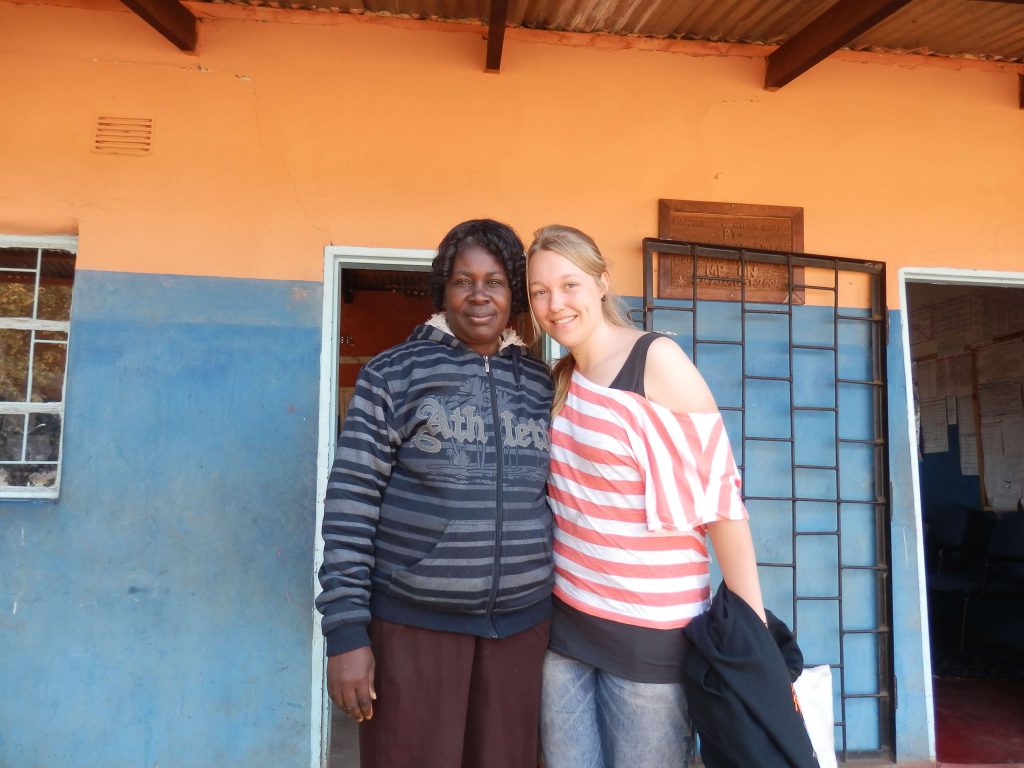 Mathilda, the teacher I helped.
Mathilda, the teacher I helped.
If you think you’re too small to have an impact, try going to bed with a mosquito. – Anita Roddick
What is it I do?
I’m mainly looking at the behaviour of the mosquito. There are a lot of questions that arise when I’m thinking about mosquito behaviour. For example: why does she bite us? How does she bite us? When does she bite? Where does she bite? Why do I always get bitten and other people not? I’m trying to get insight in a lot of these questions by doing experiments with mosquitoes.
Mosquito 101
Only female mosquitoes bite: they use blood to get nutrients for the production of her eggs. Female mosquitoes use different senses to find us: they can amongst others hear and see, but the nose is their most important sense. They have hundreds of little eyes that form one big compound eye, and their antennae are actually their nose and ears. From a distance they pick up carbon dioxide, something we all exhale, an important substance of or breath. When they get closer they use different odours, the ones that makes us smell like humans, mainly odours produced by bacteria on our skin. Some people produce other odours than other people which can make them more or less attractive to mosquitoes. When they’re really close they also use their eyes and finally land on a carefully chosen site on your body. Of course there’s a lot more to this process. Even though mosquitoes are tiny, they are capable of complex behaviour. There are not only differences between different mosquito species, but also within a species, and even individual mosquitoes can behave differently.
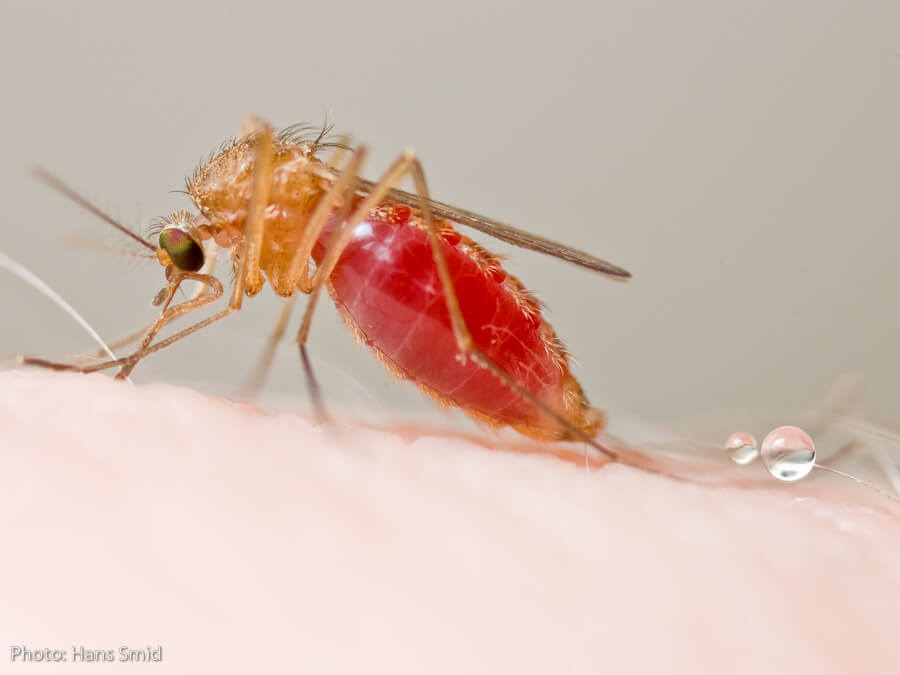 Anopheles gambiae, one of the most important mosquito species to transmit malaria. Foto courtesy: Hans Smid from Bugs in the Picture.
Anopheles gambiae, one of the most important mosquito species to transmit malaria. Foto courtesy: Hans Smid from Bugs in the Picture.
Thoughts that keep me going
Humans and mosquitoes are in an arms race for thousands of years already, humans want to get rid of mosquitoes, and mosquitoes that want to use humans as a nutritional source. The growing human population, climate change, loss of animal habitat to the building of roads and villages, agriculture, illegal hunting for bush meat, traditional medicine and live animal trade are all key factors in bringing animals in close contact with humans which increases the chances of disease transmission via mosquitoes. Diseases transmitted by mosquitoes will be an increasing threat, recently demonstrated by the outbreak of Zika virus in Brazil. The thought of trying to fight against mosquitoes gives me endless motivation!

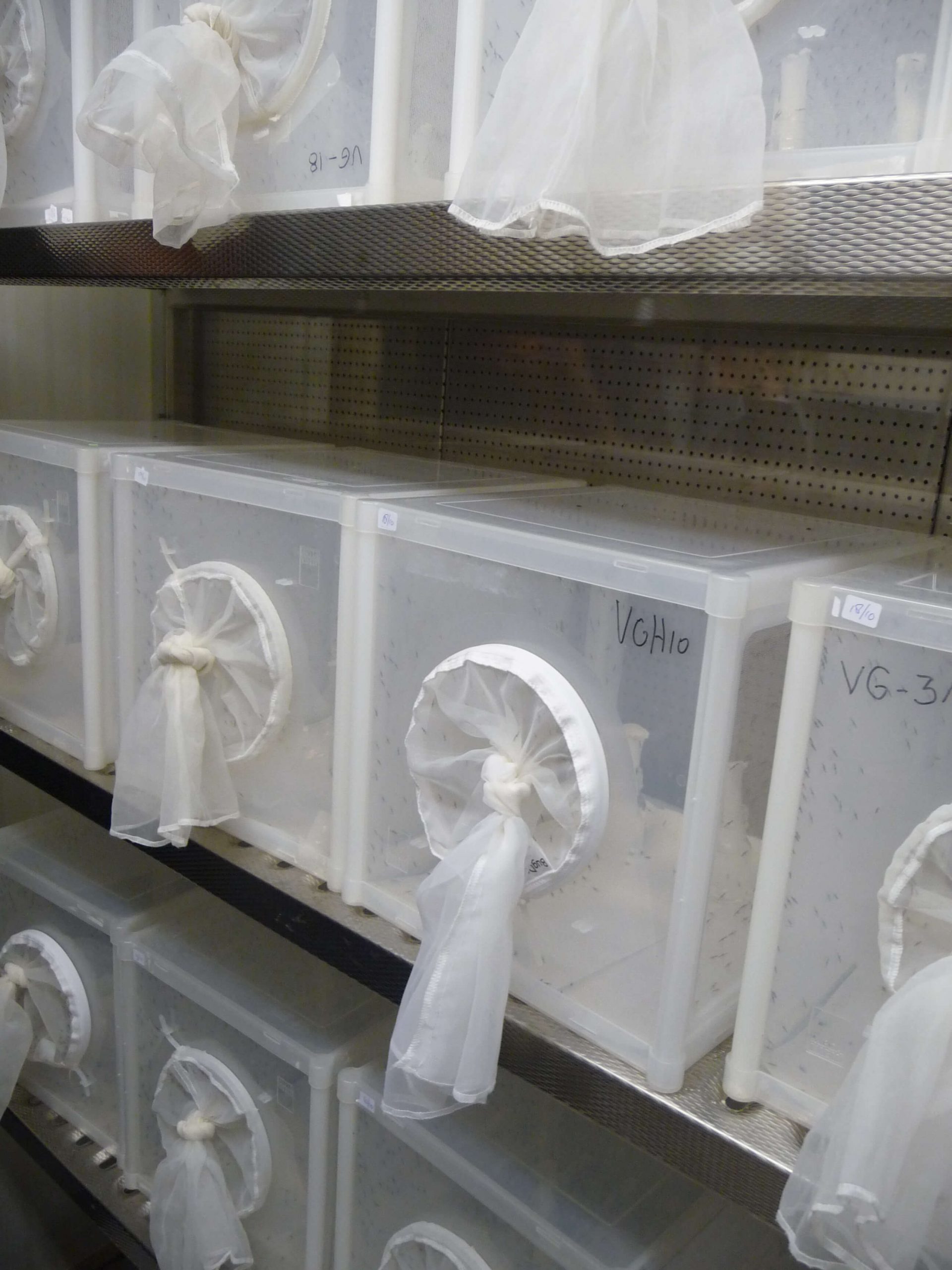
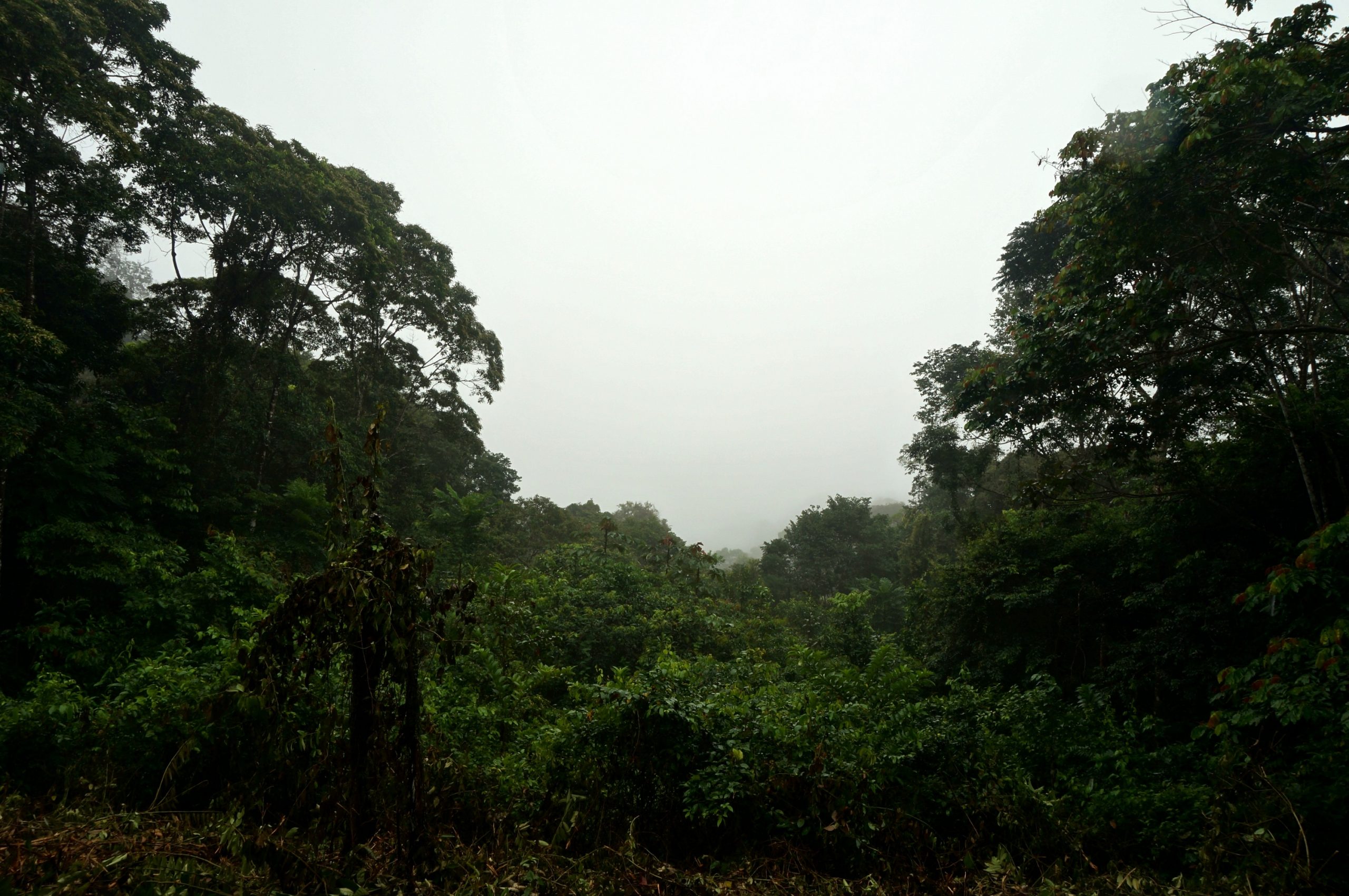
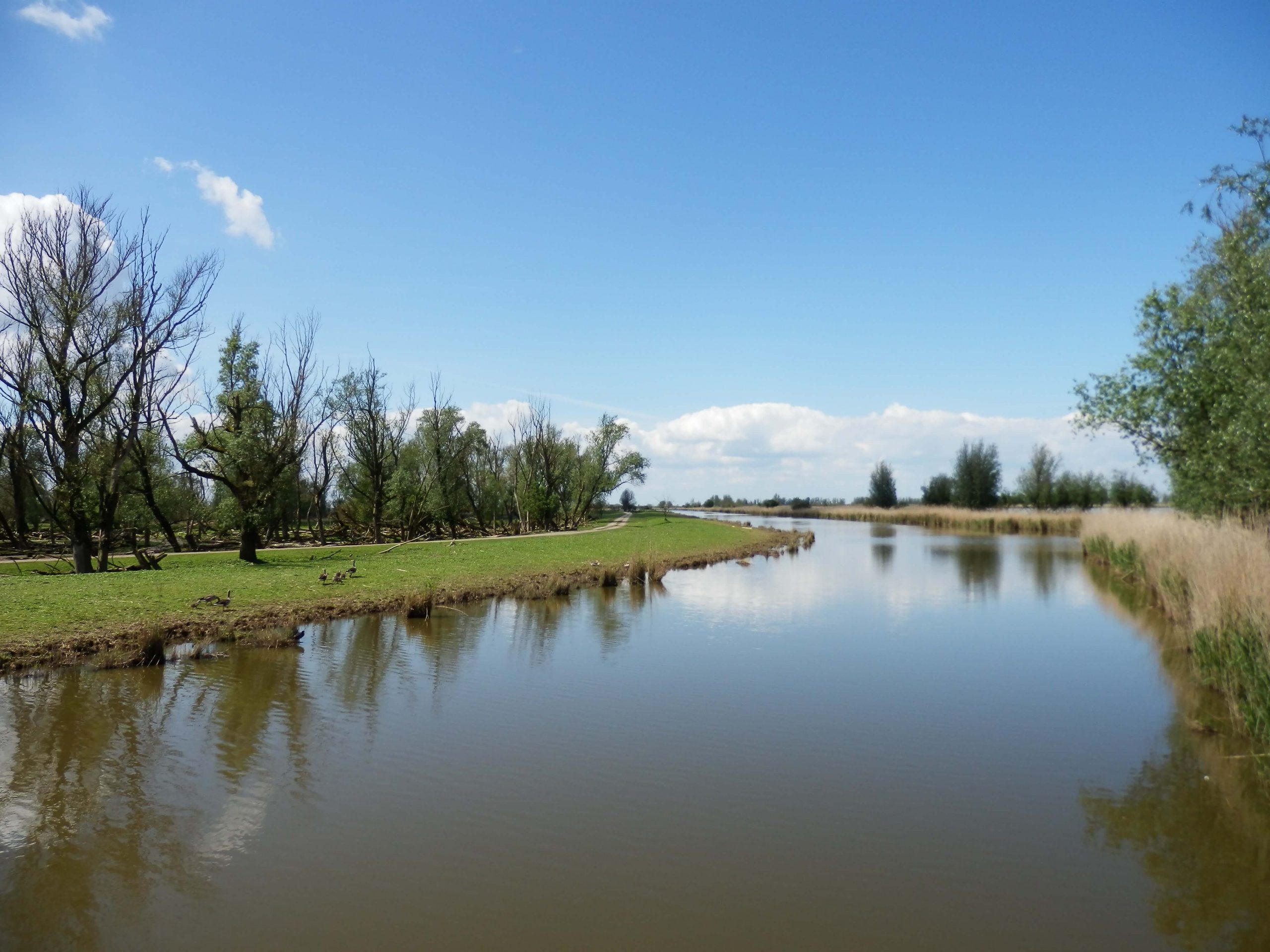
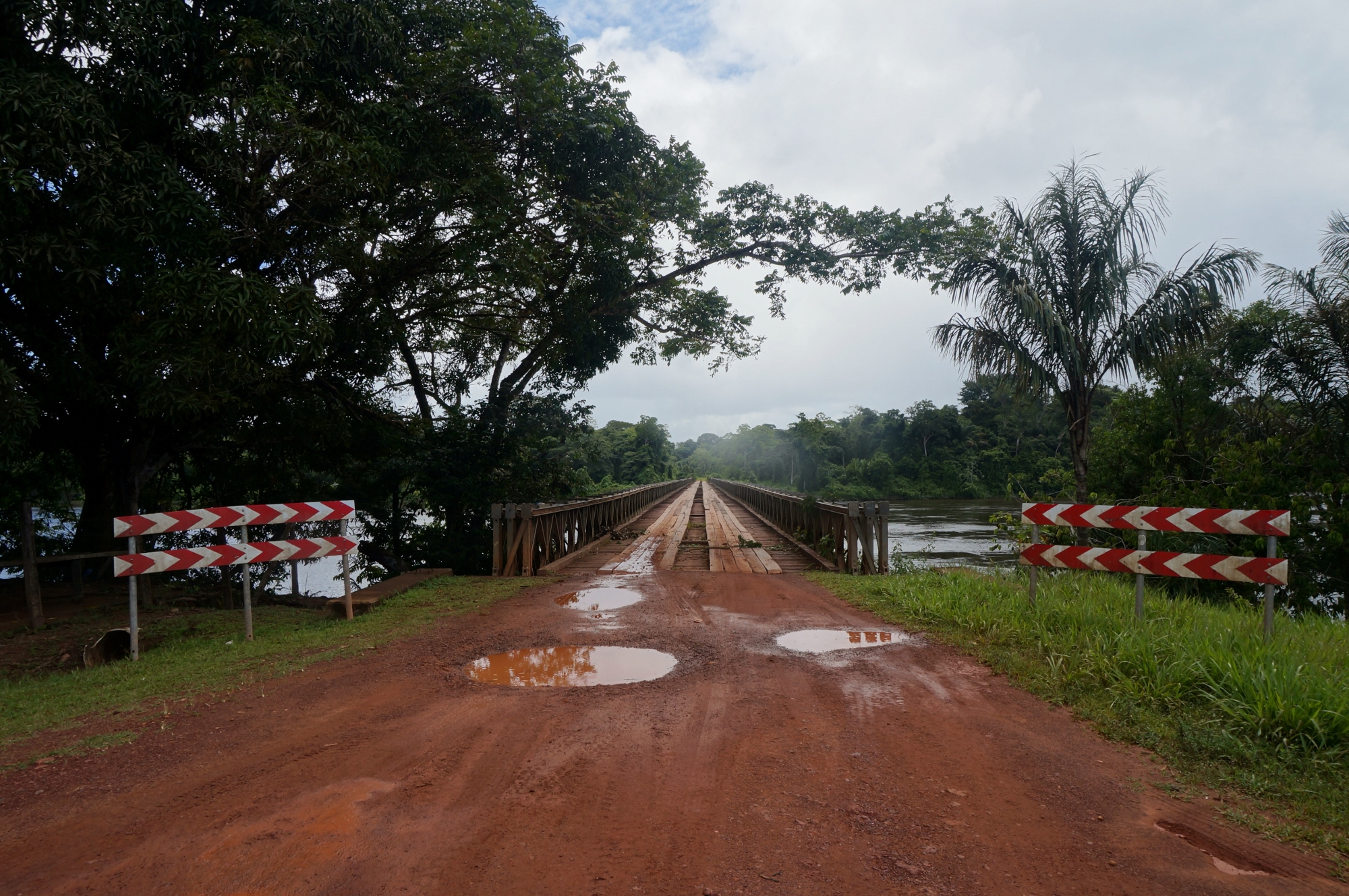
1 Comment
Mosquito research in Suriname: Yellow fever – Tessa's Cup of Tea
January 26, 2018 at 4:25 pm[…] in animal adaptation and behaviour. My focus lies on mosquitoes. Why? You can read that in my previous mosquito blog! I am specializing in the ecology of mosquitoes that can transmit infectious diseases. At the […]